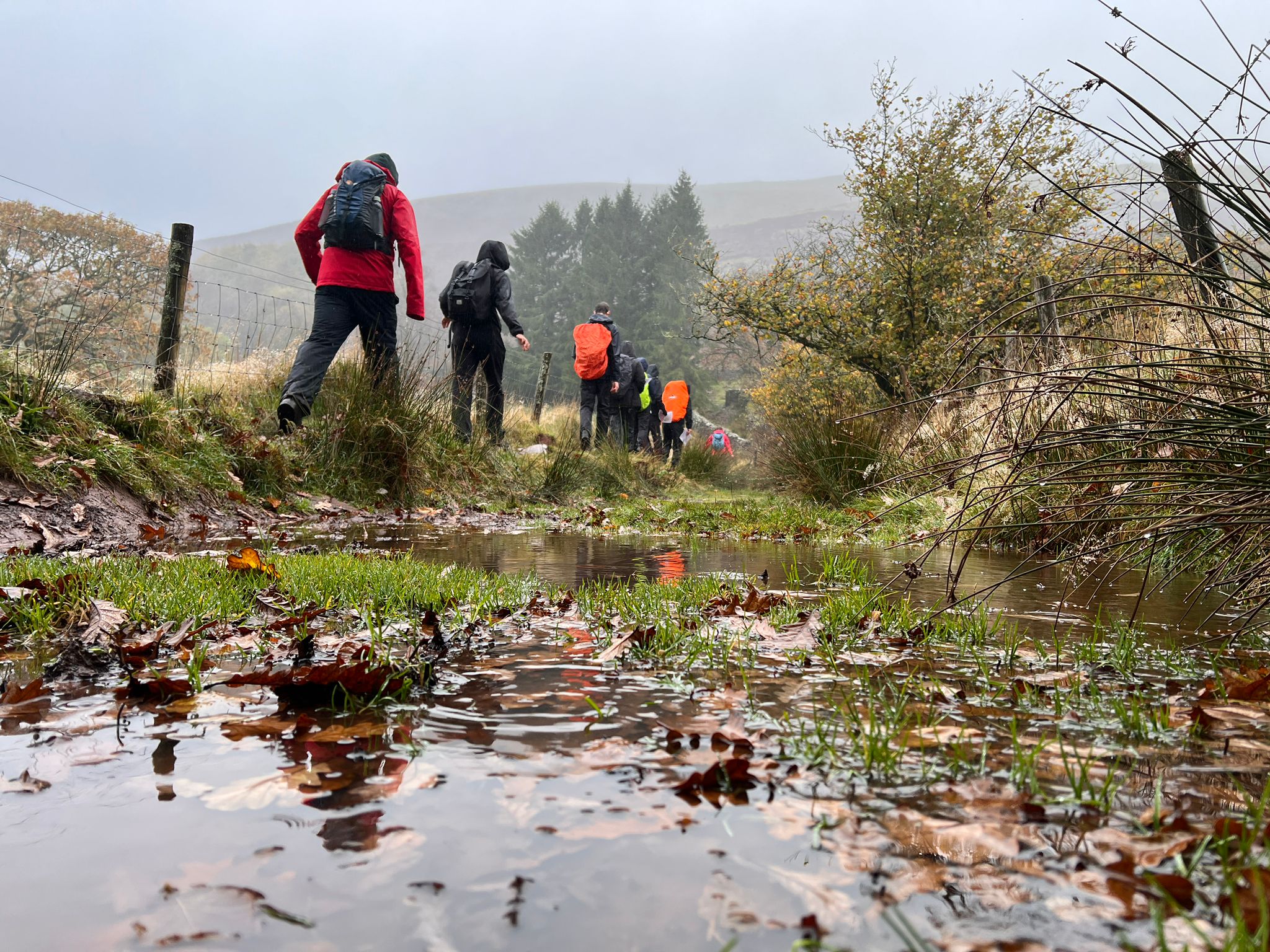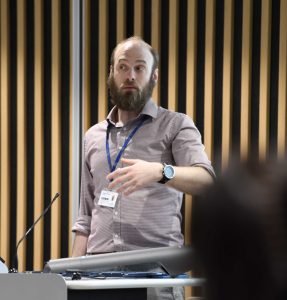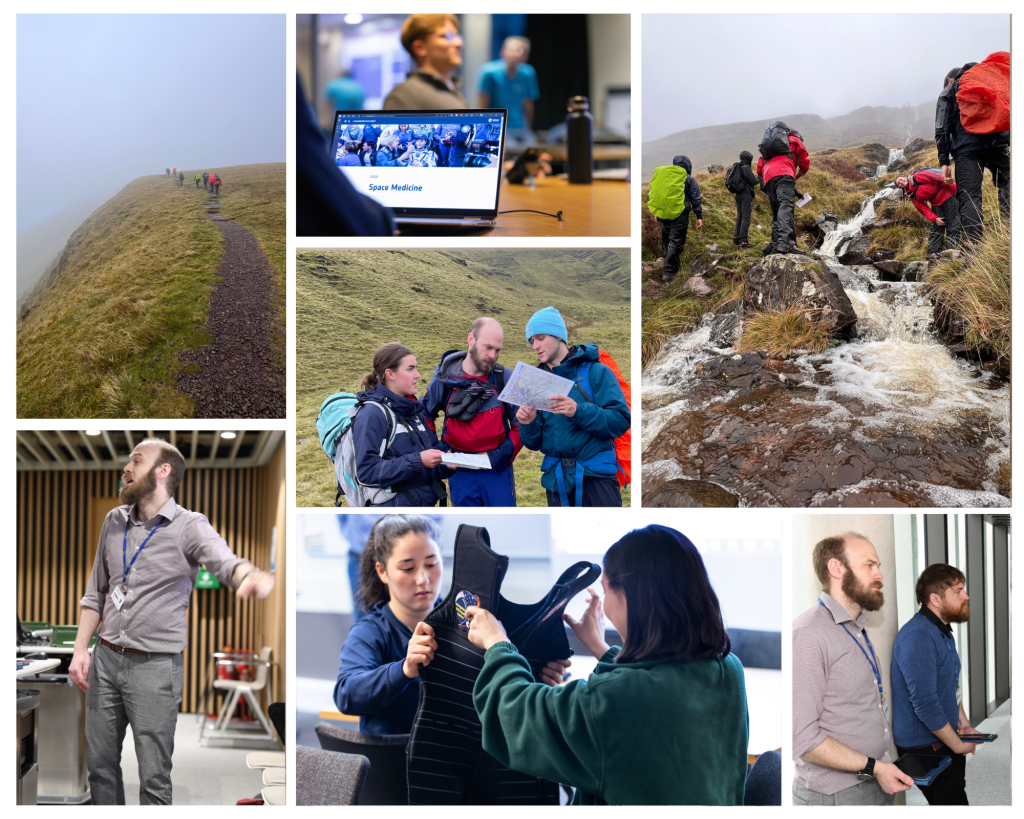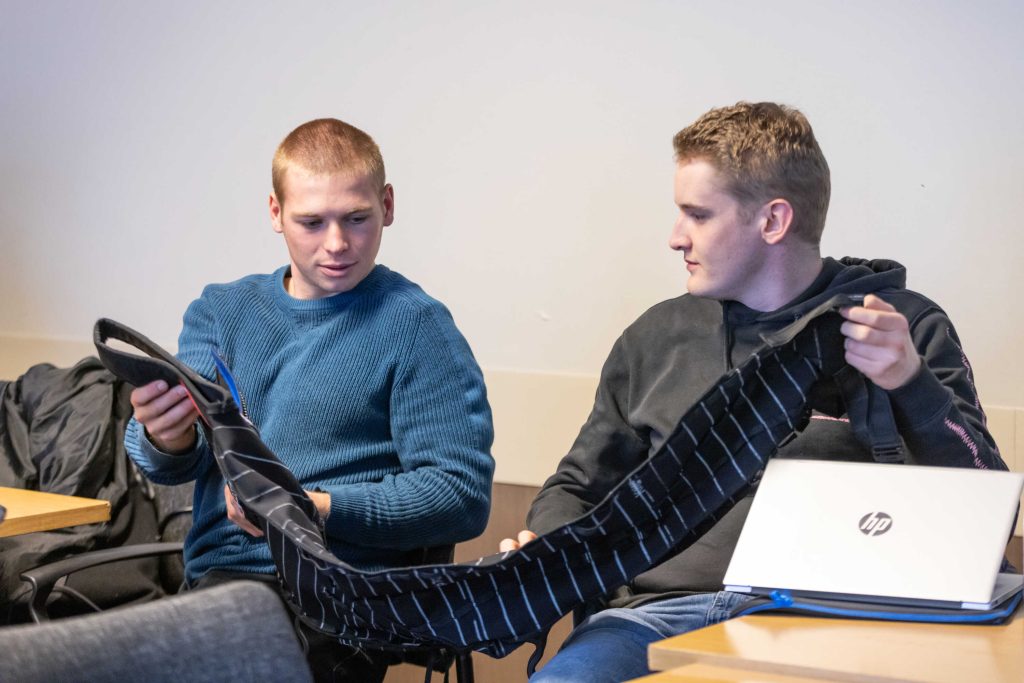
We had the opportunity to sit down with Senior Teaching Fellow, Dr Tamlyn Peel from the iBSc Remote Medicine course to explore how his diverse background as a scientist and mountaineer ultimately led to teaching in this unique field here at Imperial.
Tamlyn shares his passion for combining science with outdoor experiences, the value of field trips, and his dedication to inspiring students to think critically and engage with real-world medical challenges.
“Teaching isn’t about being an expert in the subject – it’s about sharing skills and ideas”
How has your career led you to teach on the remote medicine course?
 For most teaching fellows, we go through the research pathway. Everyone starts off doing a PhD in a subject they think they enjoy, and then often people progress into doing postdoc roles as well. For me, it was the exposure to teaching all the way along that part of my career.
For most teaching fellows, we go through the research pathway. Everyone starts off doing a PhD in a subject they think they enjoy, and then often people progress into doing postdoc roles as well. For me, it was the exposure to teaching all the way along that part of my career.
I had already done different things before I came into my PhD. I worked in the NHS and then a biotech company for a bit, then I went off to do a postdoc at King’s [College London] after my PhD here at the National Heart and Lung Institute (NHLI).
When it came time to find my next job I started looking more seriously at teaching fellow roles and there was a position at Imperial in what was then called Wilderness Medicine.
My background is as a scientist, but I am a mountaineer, which I define as someone who used to do a lot of climbing and now mostly does walking. I’ve been to altitude a few times – in the Himalayas and the Alps – so I knew a lot about the effects of altitude. I’ve also done mountain leader training and am used to teaching people in the outdoors. It was a great meeting of two skill sets I had: the science and the outdoors.
Although the content has changed a lot since, it’s coalesced around three main ideas: extreme physiology, rural medicine, and technology in medicine. For extreme physiology, we focus on how the body reacts when it goes to high altitudes, underwater (diving), or into space. It’s a way to apply the physiology that medical students learn in their early years. It also lets us conduct experiments on the students themselves, like hypoxia and cold response tests.
For rural medicine, we’ve developed relationships with places like Fort William’s Hospital at the base of Ben Nevis and Thames Valley Air Ambulance. Lastly, we explore how technology can assist in these remote environments, including telemedicine.
So, my career has gone from doing science in immunology to teaching remote medicine and developing new projects and research, which has been really exciting.
What do you hope your students achieve after completing the course?
Most students will go into medicine, of course, but I hope we also teach them to think critically and scientifically.
Some students go on to clinical-academic careers, others explore expedition medicine, internships with the European Space Agency, or rural medicine roles in underserved areas like Scotland or Wales.
Personally, I hope they gain the confidence to pursue their own adventures and apply what they’ve learned to their careers and lives.
What aspect of the course do you enjoy teaching the most?
I’d be lying if I said it wasn’t the outdoor aspects – that’s one of the reasons I was drawn to the job. I love taking people outdoors who haven’t been before. It’s rewarding to provide a safe and comforting environment for them to experience and enjoy the outdoors.
I also enjoy talking about science with the students and encouraging critical thinking; it’s rewarding to see them start engaging with ideas, theories, and analysis.
So yes, the outdoor stuff is great, but inspiring students to think scientifically is also very fulfilling.

You mentioned the outdoor field trips. How do they enhance the course, and why are they so important for student learning?
Good question. I’m actually finishing my master’s in education, and my research question is based on this! Field trips require a lot of effort – our last one involved eight staff members – so they need to be worthwhile.
Remote medicine needs an out-of-London aspect. Field trips teach students how to operate in the outdoors. Some have never been introduced to that environment, so it’s a great opportunity for them to learn outdoor skills, leadership, and teamwork. For others with more experience, it’s a chance to apply those skills to medical and scientific contexts.
If students want to become expedition medics, they need to know how to care for themselves and others in remote settings. It’s also about planning – most of expedition medicine is about preparation, not just reacting to emergencies.
Beyond skills, field trips provide transformative experiences that we can’t replicate in the classroom. Students grow personally and professionally, which aligns with the leadership and teamwork goals of the GMC [General Medical Council].
Do you have any memorable moments from field trips that you’d like to share?
The Brecon Beacons trip is always nice – it’s enjoyable to get away. Last year, I had a student thank me for looking after them and say they’d never done anything like it before. That’s really rewarding.
I’ve also been on Nepal trips, which were transformative. Visiting remote health posts – one or two weeks’ walk from the nearest road – was incredible. Seeing how two nurses manage healthcare for 300–400 people in such isolated areas was inspiring.
What advice would you give to staff interested in teaching or contributing more to education?
Teaching reinforces your own understanding of a subject. It’s rewarding to help students succeed or support them through challenges.
It’s also vital for the university community – recruiting students, supporting projects, and fostering good relationships. You don’t need to be an expert in the subject; teaching is about staying one step ahead of the students and helping them develop scientific skills.

To finish off, what’s the most rewarding part of your work?
Seeing students graduate and develop as people is incredibly rewarding. Watching their progress from when they join us to when they leave is heartening.
Teaching provides more immediate gratification than research. A session, module, or year can yield tangible outcomes, which is very fulfilling. Teaching isn’t about being an expert in the subject – it’s about sharing skills and ideas. Anyone with an interest in education can contribute meaningfully.
To learn more about Remote Medicine and other programmes offered by the National Heart and Lung Institute, please visit our Study pages.